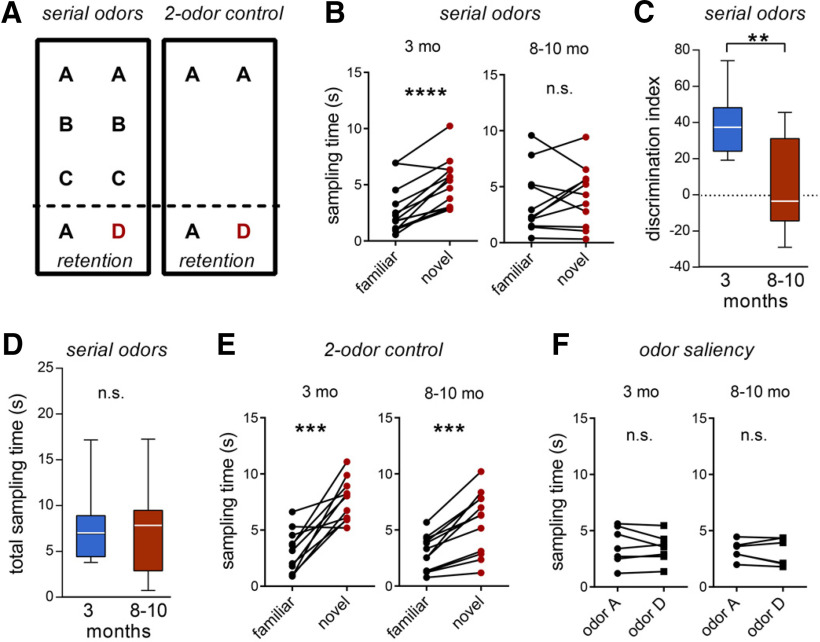Figure 7.
LPP-dependent episodic memory task performance declines from early to late phases of young adulthood in mouse. A, Mice were tested on two paradigms. The serial odors task entailed sampling a sequence of identical odor pairs (A:A, B:B, C:C) followed by a retention trial with a novel odor paired with a previously sampled one (A:D). In the two-odor control task, an identical odor pair (A:A) was followed by a retention trial pairing odor A with a novel odor (A:D). The delay between the first pair and the A:D retention test was the same in the two paradigms. B, The 3-month-old mice (N = 12) preferentially explored the novel versus the familiar odor in the serial odors task (****p< 0.0001, paired Student's t test), whereas 8- to 10-month-old mice (N = 11) did not (p = 0.471, paired Student's t test; n.s., not significant). C, Group measures for the discrimination index calculated from data presented in B (**p = 0.0013; unpaired t test). D, Total time sampling cues in the serial odor retention test did not differ between groups (p = 0.897). E, In the two-odor control task, mice in both age groups spent a greater proportion of sampling time exploring the novel cue (***p ≤ 0.0002, both groups). F, Control saliency tests demonstrated that both odors A and D were equally sampled by mice of both age groups (p = 0.4205 and p = 0.5377 for 3- and 8- to 10-month-old groups, respectively).

